Menu
Menu
March 17, 2021
by Paul Ciampoli
APPA News Director
March 17, 2021
Across the country, a new generation of female engineers is making its mark at public power utilities.
For many, their path to engineering began at a young age, with their interest sparked by a math teacher in high school, a high school introduction to an engineering course or discovering a love for fixing things.
A number of female engineers profiled in this feature said that what they like about working at public power utilities is the variety of work that they get to engage in on a regular basis.
In honor of Women’s History Month, commemorated each March, the American Public Power Association’s Public Power Current newsletter is highlighting the many roles that women play at public power utilities across the U.S.
Los Angeles Department of Water and Power
Los Angeles Department of Water and Power (LADWP) electrical engineer Sabi Valdez hadn’t heard about engineering until a friend mentioned electrical engineering to her during their senior year in high school.
“I asked her a lot of questions about what engineering was and she was able to give me a good idea. One of the things that I specifically remember she mentioned, was that it was a lot of math and science which I loved,” Valdez noted.
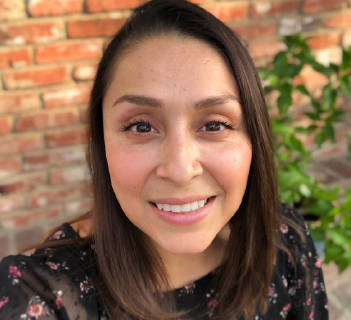
“This made me really curious about whether this was a career I could go into and be good at. I learned more about this career from my counselors and found out that there were different branches of engineering including mechanical, electrical, civil, chemical, and many more. This meant I had many choices which made it very attractive and fun so this was one of the reasons I chose it. Another reason is that this was a non-common career to me especially since I hadn’t heard of it before my senior year and so that drew me towards it as well,” she said.
Valdez chose to work at a public power utility “because I knew that the customers would be important and that by working here I was helping them get what they needed. I also knew that there were different opportunities offered based on the student engineer opportunities that I learned about when I was in college.”
She became a student engineer at LADWP in the Green LA Solar Group and found out that there were groups in environmental, design, planning, and many more. “Based on that I knew that working for a public utility would never be boring and that I could do many different jobs that would be contributing towards our Department goals,” she noted.
“What I enjoy most about the work is that every day is different. I learn about what my coworkers do and in general what different classifications responsibilities are,” Valdez said.
“I have also had the opportunity to make every position in every group I have been in my own. For example, as a design engineer I have been able to go to the field and see firsthand what the jobs I have worked on look like. It has been very satisfying to know that I helped customers get their power services. As a specifications engineer, I have helped our internal employees get the equipment and materials they need to complete their jobs.”
She was also able to go to the field “and witness and accept testing of equipment. In my current group with Safety I am ensuring employees have the right PPE they need to stay safe. I also support my group with any technical requirements and I also get to visit our substations and learn about what work is done and the importance of it. Every day is a continuous learning experience and it makes my work enjoyable.”
For LADWP electrical engineer Kianiwai Jones, her path to engineering began when she discovered a love for fixing things.
“If anything in my home broke, particularly if it was an electronic device, I thought it was so much fun figuring out how to fix it and loved the feeling of accomplishment if I did. At the heart of this odd hobby was a penchant for analytical thinking and problem solving so I started thinking about engineering as a possible career,” Jones said.
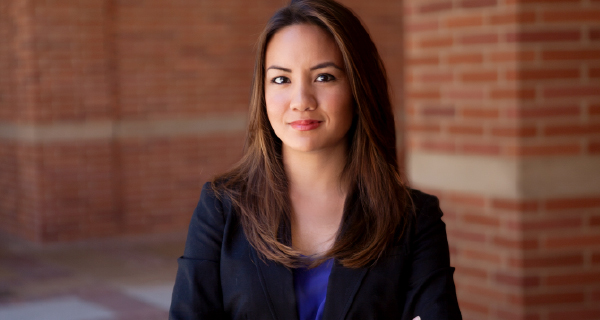
Her high school offered an introduction to engineering course which revolved around building a rudimentary electric car from scratch “and that cemented my decision to pursue electrical engineering in college.”
As for why she chose to work for a public power utility, she said that at the time she was interning for a Department of Defense contractor in the aerospace industry, “I was feeling conflicted about the projects I was working on and what I was supporting in the grand scheme of life. The description for the job at the public utility made me feel like my work could affect the lives of everyday people in a positive way and I was really drawn to that sort of rewarding work.”
Jones has enjoyed the opportunity to work in a number of different areas across LADWP, “exposing me to a variety of different aspects of the organization and giving me a broader knowledge set that I feel makes me a valuable asset. I’m also happy to say that I was able to achieve the feeling of making a positive impact in the world with my job.”
She currently works for the Electric Transportation Programs team “where we spend every day trying to advance the adoption of electric vehicles through various programs, partnerships and initiatives in an effort to reduce greenhouse gas emissions and create a cleaner living environment for the people of Los Angeles,” Jones said.
“It’s a pretty full circle story given my starting point building a small electric car in a garage 16 years ago, my senior year of high school, and then four years later designing a more complex electric car in an engineering lab my senior year of college. It’s not where I ever expected to be, but one of the things I’ve always loved about engineering is the opportunity it gives you to enter into a wide variety of career paths.”
LADWP electrical engineer Jasmine Arceo knew she wanted to study engineering after having a strong interest in science, math, and real-life applications. “I chose to study electrical engineering when I realized how flexible the field can be and the various opportunities available.”
With emerging technologies in the energy sector, “I wanted to contribute to the transition to clean and sustainable energy,” she said in explaining why she decided to work for a public power utility.
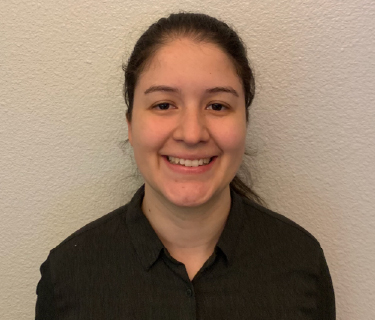
“My focus is currently on the advancement of transportation electrification. I enjoy supporting programs that help bring LADWP closer to greenhouse gas reduction targets while interacting with the public,” Arceo said.
New York Power Authority
On the other side of the country, Amariah Barton-Harris is an assistant construction engineer at the New York Power Authority (NYPA).
“NYPA has a long history of expansion, is involved in local communities, and presents tremendous growth opportunities,” she noted. “With the recent launch of our ten-year strategy, VISION2030, this is the perfect time and place for an electrical engineer. NYPA is upgrading the entire Niagara plant and it allows a young engineer like myself to learn the ins and outs of the facility. I get the opportunity to grow and evolve with the site – that is incredible!”
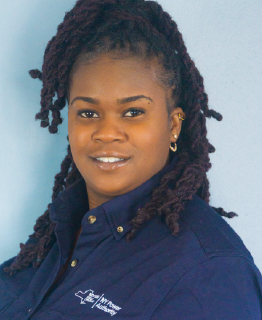
Barton-Harris has a Bachelor of Science degree in electrical engineering technology with a minor in mathematics from Buffalo State College and an associate’s degree in general studies from Erie Community College. She joined NYPA in 2020.
“I enjoy the diversity of my work the most,” she noted. “As an assistant construction engineer with multiple projects, I can see the beauty of many different types of engineering. Working with contractors, I witness how technicians, linemen, and many others execute an engineer’s design. As an individual that enjoys learning, I am blessed to have received a position where I am able to gain new knowledge every day,” Barton-Harris said.
“Since I was young, I have been fascinated with electronics. I would deconstruct anything I could get my hands on and attempt to put it back together,” she said.
In high school, she was introduced to power systems, other engineering disciplines, and how all of it comes together to meet a common goal.
“In college, my professor, Dr. Barker, reiterated that concept with his teaching approach as we were asked to work in groups and trust each other along the way. If one failed, we all failed. This is how I fell in love with achieving a complex goal with a group of hard-working people. An exceptional generation, transmission, distribution and building design takes a village of engineers of all disciplines and dedicated labors. Here at NYPA, I found my village that I am honored to be a part of and am reminded every day what drew me to electrical engineering.”
Holli Monroe, a Project Engineer II and Engineering Supervisor in NYPA’s Clean Energy Solutions group, specializes in engineering and construction management. She joined NYPA in 2013 and has a Bachelor of Science degree in mechanical engineering from the Rochester Institute of Technology.
“I was first introduced to the New York Power Authority when I toured our Blenheim-Gilboa Pumped Storage Power Project. I was intrigued by the interconnectivity of the environment and economy, with a focus on clean energy solutions for New York State. This sparked my interest in joining NYPA,” she said.
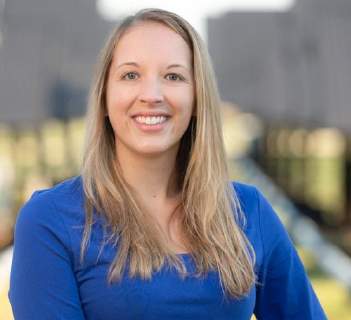
Community service “is one of my core values. NYPA is similarly community focused. In my capacity at NYPA, I lead a team of engineers with the goal of improving energy efficiency for our customers in the public sector. Personally and professionally I am proud to perform work that benefits the people, environment, and economy where I live.”
She especially values her membership “in our Women in Power Employee Resource Group. Across engineering women are underrepresented. Having a strong, supportive group of women at NYPA has been inspiring.”
She said that it is “rewarding to bring environmental and economic gain to our customers through energy efficiency projects. Saving energy for New York State while also saving our customers money is a true win-win. The diversity of projects I work on come with unique learning opportunities. No two customers, facilities, or scopes of work are exactly alike. The variety of this work promotes continual growth and development.”
Monroe said that her love for problem solving and “desire to design and build a better world drew me to engineering. I enjoy troubleshooting challenges by analyzing data and applying creativity to arrive at technically sound solutions.”
Lower Colorado River Authority
Monica Masters, P.E., Vice President of Water Resources at the Lower Colorado River Authority (LCRA) in Texas, noted that she had an amazing math teacher in high school who completely drew her to math.
“Math was my best subject through school, but I didn’t have a love for it until I saw it through somebody else’s eyes who loved it. After I’d had such a great teacher, I wanted to do something that involved a lot of math, and engineering is where I ended up,” Masters said.
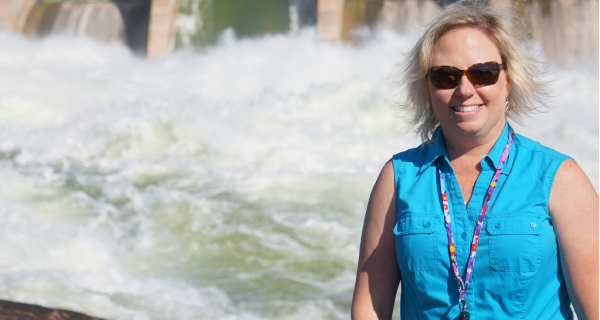
“I still love it, and I’ve enjoyed teaching my kids math during home schooling during the pandemic. I’m having to remember things I forgot years ago, but it’s all good because I see my girls picking up a love for math. Luckily, my husband loves it too, and we actually fight over who gets to help them with their math homework.”
In terms of what she enjoys most about working for a public power utility, Masters said she loves the variety, “because we get to do something different every day. We don’t have to focus on just one thing in our careers. You may work on a project, and then go be a project manager for something completely different, and then you may go meet with customers or work with Legal on contracts. You’re doing something different almost every day.”
As for what accomplishments she is most proud of in her career, Masters said that more than any single project, she is proud of seeing a project completed. “When you take a project from inception to design to construction and completion and you can say it’s done — to me that’s the best feeling. For instance, I oversaw the refurbishment of a hydrogeneration turbine at LCRA’s Mansfield Dam, and to know that turbine is set to operate reliably and efficiently for years to come is awesome.”
When asked if there are any professional development opportunities that have been particularly meaningful for her, she said, “I’m a big believer in taking advantage of professional development from industry organizations that can provide information and data on how others have overcome obstacles you may be facing. In some cases, such as our hydrogeneration units, it’s also helpful to hear about issues that occurred outside of the United States, and the Association of State Dam Safety Officials is excellent at helping us stay up to date.”
Also, she never underestimates the power of a mentor. “I’m very grateful for the mentors who have encouraged me, especially my high school math teacher who showed me that math was fun and interesting. I’m one of those people who found out what I loved doing, then found a job that lets me do it day in and day out,” Masters said.
Fort Collins
Poorva Bedge, who works as a senior electrical engineer for the City of Fort Collins, Colo., became an electrical engineer mostly because of her personal experiences as a child.
“I was born and raised in India, an energy poor country. When I grew up, I was accustomed to electricity outages and since our family had very few electric devices, it wasn’t particularly hard to survive without it. I am ashamed to say that I sometimes remember those outages quite fondly, the entire family huddled together, talking and laughing, over long candle-lit shadows.”
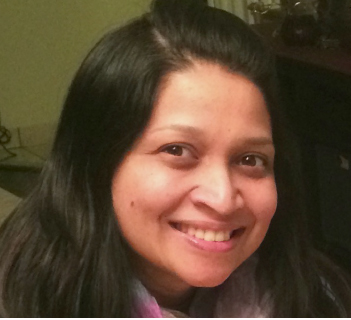
While she never thought much of it then, “it was my undergraduate education in electrical engineering that really made me see how electricity and energy use, perhaps a basic human right, is the lifeline for economic, social, and public wellbeing. Since then, I have been fascinated by the electric power sector and am encouraged to see how it is being transformed in the twenty-first century to provide sustainable power to millions of people.”
In terms of what she enjoys the most about working for a public power utility, Bedge said that every day at the utility is truly exciting.
“Being new to the organization, I am introduced to something that I didn’t know yesterday. It’s fulfilling to know that my input is useful on a day-to-day basis and impactful over the long-term.”
A part of her doctoral work in systems engineering at Colorado State University (CSU) is focused on how the utility infrastructure would respond to distributed energy resources.
“With climate action plans taking center stage in Fort Collins and other progressive cities throughout the US, utilities need to think critically and act soon on how they intend to transform their infrastructure and practices to a carbon-neutral economy in a few decades. This is perhaps the most enjoyable and gratifying part of my work where I can think through and help execute technology and policy solutions for a sustainable future,” she said.
When asked what accomplishment she is most proud of in her career, Bedge said, “It would have been hard to imagine more than a decade ago that in 2021 I would be close to a doctorate in engineering, have extensive experience at different scales of the electric power sector, be a working mother of two amazing young kids, and live in one of the most livable cities in the United States (well, it hasn’t been fun to live through a pandemic but I am sure we can all leave that one out of our stories!).”
She said that although “luck has played an important part, I am very proud that I have been able to don and learn from these very different roles as I engage with and encourage women in engineering to excel in all spheres of life.”
As for whether there are any professional development opportunities that have been particularly meaningful for her, Bedge noted that she is new to Fort Collins Light and Power and have only lightly explored the professional development opportunities at work.
“It is no surprise that the pandemic has made it harder to engage with peers and leaders and I am waiting to be back in the office,” she said.
“Prior to my time at the utility, however, I was part of the Sustainable Research Network (SRN) at CSU: a group of researchers across multiple institutions supported by the National Science Foundation. Here, I was able to take coursework and attend workshops related to the science of sustainability and policy innovations that will lead to environmentally-sustainable, healthy and livable cities.”
She is also a member of the Institute of Electrical and Electronics Engineers (IEEE) and recently presented part of her doctoral work at the IEEE Power and Energy conference in October 2020.
EPB
Blair Brown, Engineer II, Communications System, Technical Operations at Chattanooga, Tennessee public power utility EPB, notes that she is “very community-oriented by nature, and I’m always aware and proud that what I do at work affects the entire city. From keeping the internet working, to creating and maintaining tools to make dispatching crews easier, to helping feed crews during storms, I feel like I’m making a difference.”
As for what accomplishment she is most proud of in her career, Brown noted that several years ago she started a coding class at Chattanooga Girls Leadership Academy for middle schoolers. Women are underrepresented in computer science, and she wants to help change that.
“Studies show that preteen girls’ interest in computer science is the same as boys’, but it wanes at that age. I’ve taught several girls who really dove into it and I’m hopeful that they’ll get into a technology-based field in the future. If I can someday retire having increased the number of women in technology, I’ll count that as a win,” Brown said.
One thing that has changed her life and career more than anything is a mentoring program that EPB started with Chattanooga Girls Leadership Academy several years ago, she said.
“The program obviously is meant to benefit the students more than the employees, but it has given me much more confidence in my career and personal life. It has allowed me to take chances that I wouldn’t have otherwise attempted.”
Angela Carr, Senior Manager, Field Operations at EPB, said that “when you work for a public power utility, there are a variety of ways to feel like you are helping your community. To not only have the ability to work alongside wonderful, dedicated individuals, but also to be able to provide and restore power during unforeseen times for those in your community is a rewarding feeling.”
Power “is a basic necessity and I enjoy being able to serve our community by providing that reliable service to meet their needs when they need it most,” she said.
As for what achievement she is most proud of in her career, Carr noted that during April 2020, a tornado devastated part of the community.
“In the midst of this and a pandemic, I worked with many individuals to restore our customers’ power. This meant rebuilding our power grid over a large part of our service area as quickly as possible. The most difficult part of this was the added risk of exposure to COVID. We called on neighboring communities to help in the restoration efforts, which added more of a risk of exposure,” she said. “I was a part of an extraordinary team who made great efforts to ensure those working individuals would be safe from COVID.”
In terms of professional development opportunities, she was given the chance to participate and become a part of Leadership Chattanooga. This development program, through the Chattanooga Area Chamber of Commerce, prepares upcoming professionals within the community for prominent leadership roles.
“This invaluable experience gave me the opportunity to learn and grow my leadership skills while getting to know more about my community. I learned ways to improve not only in the personal arena of my life, but also professionally. For something to be considered meaningful, it has to render the ability to continue to hold value. Because of this program, I have made life-long connections with other professionals with hopes of finding ways to continually better my community.”
What Angela Love, Manager, Energy Services at EPB, enjoys the most working with a public power utility is community involvement.
“I love being a part of something that is so much bigger than providing a service,” said Love, who leads the key customer group for commercial electric at EPB.
“Our mission statement says we enhance the quality of life of the community in which we serve, and we truly do. Just being a part of the company is not enough. I get to grow and learn from others and give back at the same time. Our various community partnerships and interactions make coming to work a great pleasure.”
She is most proud of her ability to aid in the development of people. “It is one thing to manage a group, it is another to nurture and grow your people. Developing relationships and encouraging others is a gift.”
The EPB official said she loves mentoring. She is part of the Spark Mentoring Leadership team. “I think it is so important to give back and teach others. In many cases, you can help them avoid some of the pitfalls that they may experience; but on the other hand, you can help them to recover from mistakes/setbacks. It is so important that we help one another.”
Working in this industry “is so rewarding and has so many opportunities. I believe that women provide a unique perspective in any environment and sometimes our uniqueness allows others to arrive at conclusions they may not have otherwise considered.”
City of Statesville, N.C.
Both sides of Devon Shelton’s family are very strong in mathematics and science. “Several of my relatives are engineers as well, so I guess you could say that I grew up around engineering,” said Shelton, Electric Utilities Assistant Director for the City of Statesville, N.C.
“When I was young, I was told that I thought and learned like an engineer. I have always understood and enjoyed mathematics and science and have been interested in how things work. When learning about electricity, I found that things just seemed to ‘click.’ When it came time to choose a career path, everything fell into place regarding my interests, strengths, and mind set,” she said.
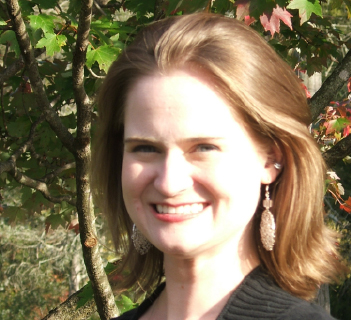
“I love the tight-knit community of public power where importance is placed on the individual and quality of service. Co-workers are considered to be friends or family rather than just ‘people I work with.’ That sentiment extends to the entire public power community regardless of distance, which I sincerely appreciate.”
She also enjoys the fact that no day is ever the same. “Being a smaller municipality that is part of APPA, we have access to the kinds of resources that larger private companies do; however, some of those resources are not always directly located ‘in-house.’ With a small staff, we have to attain mastery in many areas, but it is nice to work with groups like APPA to gain access to certain niche areas of expertise. This helps us to perform well compared to companies that are many times our size. Essentially, we have to wear all kinds of different hats depending on what is needed at the time. We get the pleasure of constantly learning new things and no day is ever the same.”
When asked to detail whether there are any professional development opportunities that have been particularly meaningful for her, Shelton mentioned John Laetz, who was her boss during a college internship.
“He was especially supportive and encouraging. He constantly went out of his way to ensure I was exposed to various aspects of the application and practice of engineering within the power field since I primarily lived in books up to that point. When I graduated, I went full time into public power and I have not looked back!”
She said that APPA’s Engineering and Operations Conference was one of the first conferences she can recall attending.
“I distinctly remember being introduced to APPA staff members who were exceptionally welcoming and reassuring. I learned so much from that first conference, not just technically, but professionally and realized that public power was where I wanted stay.”
Copyright © 2024 Kansas Power Pool | Designed by Custom Internet Services LLC